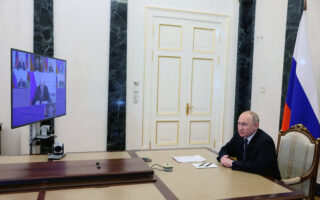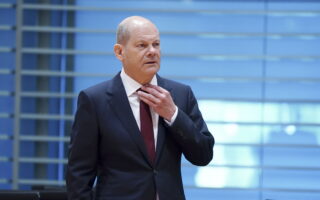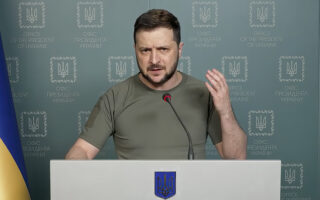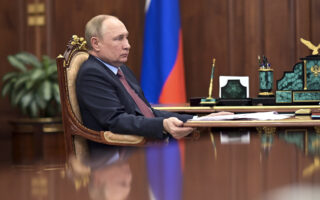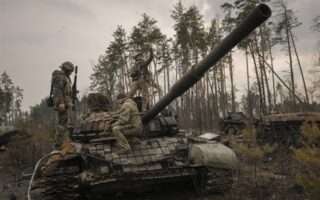Geopolitical anti-rationalism
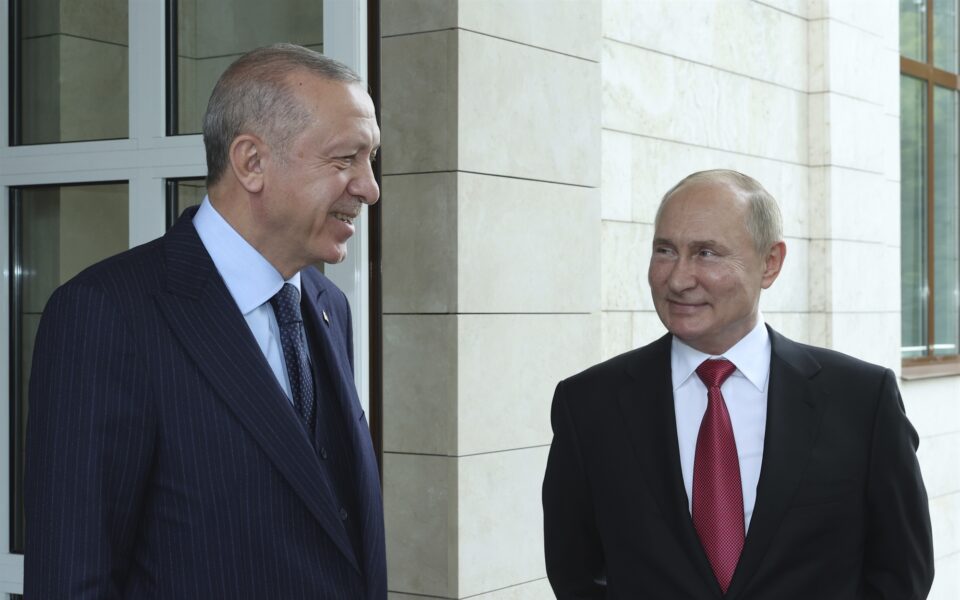
The recent outburst of Turkish President Recep Tayyip Erdogan and his derogatory comments against Greek Prime Minister Kyriakos Mitsotakis were certainly not a manifestation of rational thinking. They won’t make it easier for Turkey to strike a balance in this complex confluence of events following Russia’s invasion of Ukraine. Erdogan’s recent behavior has rather consolidated Western skepticism regarding the Turkish strongman.
Mitsotakis’ recent visit to the United States obviously hit a nerve in Turkey which triggered a spontaneous and deeply emotional reaction. The many similarities between Russia under President Vladimir Putin and Erdogan’s Turkey also include the aggressive language against neighboring leaders in Ukraine and Greece.
In the eyes of Putin, Ukrainian nationalists are in fact Russian traitors, enemy (i.e. Western) agents. He understands the Russia-Ukraine war as a civil war, of sorts. The enemy in this case does not deserve the same respect as a “normal” enemy as it were. For the Turks, modern Greeks, as the evolution of Ottoman Christian Greek subjects, are, by analogy, a treacherous element. They accuse them of entering an alliance with the Western powers during the 19th century and the First World War aiming at the dissolution of the shared Empire.
While Turkey, under the influence of Kemalism, was oriented toward Western values, the narrative of Greek “apostasy” had abated. Although they would not admit it, the Kemalists saw the Greeks, if in an antagonistic way, as the vanguard of Westernization and modernization. However, during the neo-Ottoman phase in which we are in, the positive element of reduced racial aversion is offset by the re-emerging negative stereotype of betrayal.
Putin is urging the Ukrainians to cut ties to the West and connect with Russia. In a similar way, Erdogan requests that Greeks engage in conversation with Turkey without interference from Western outsiders such as France or, more recently, the US. As the Turks see it – a view held by many moderate analysts – this makes a cordial and generous stance toward the black sheep. They of course discard the fact that this invitation is not extended on the basis of a relationship between equals. It is accompanied by unacceptable demands and threats, such as the casus belli.
Although Greece wants to have good-neighborly ties as well as cultural and economic cooperation with Turkey, it cannot accept a stance which basically draws from the Ottoman-era inequality between Christians and Muslims. Faced with a country which has a long tradition in the use of military force, Greece has been obliged to look for allies and guarantees.
In order to achieve this, it utilizes all the available historical, cultural and other advantages including the Greek-American diaspora. Greek success in utilizing all these elements during the premier’s visit to Washington naturally irked Turkey. Its interpretation was once again based on anti-Western stereotypes.
Putin’s Russia and Erdogan’s Turkey are in deep crisis. Both leaders seek to export their domestic deadlocks, thereby creating risks for international security
Putin’s Russia and Erdogan’s Turkey are in deep crisis. Their economies are a mess and the political system is in desperate need of renewal. Both leaders seek to export their domestic deadlocks, thereby creating risks for international security.
The West was unable, or unwilling, to predict the Ukraine crisis – a failure which had tragic consequences. Let there be a warning that a similar crisis lurks in the Eastern Mediterranean. In both cases, we are faced with the same phenomenon: the death rattle of imperial nostalgia. In both cases, a scapegoat is sought: Ukraine and Greece.
In a cautious albeit clear manner, Mitsotakis underscored the parallels and sounded the alarm. Turkey’s reaction was to be expected and it only confirmed the premier’s warnings.
The attitudes of the two neo-imperial powers show that times have changed. Relations are determined less by rational calculation of economic and other interests and more by historical and geographical representations. Cartography wars are a part of this conflict between rival myths. The prime minister emphasized Turkey’s transgression as reflected in the “Blue Homeland” doctrine. Perhaps it’s a start. Our foreign policy needs to be equipped with the necessary tools for the type of symbolic conflicts at play in the Russia-Ukraine war.
International relations experts, lawyers and diplomats view confrontations and conflict through the prism of rationalism. Reacting to the current anti-rational conditions requires that we expand our perspective in the field of representations.
George Prevelakis is emeritus professor at the Pantheon-Sorbonne University (Paris 1). He is Greece’s permanent representative to the Organization for Economic Cooperation and Development (OECD).
